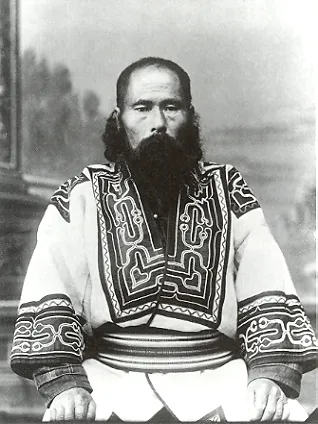Table of Contents
- Who Are the Ainu?
- Mechanisms of Marginalisation
- Consequences of Marginalisation
- Resistance and Revitalisation
- Sociological Perspectives on Ainu Marginalisation
- Contemporary Challenges and Future Directions
- Conclusion
The marginalisation of the Ainu people represents a significant case of systemic social exclusion, cultural erosion, and ethnic discrimination within the context of modern nation-building. As the Indigenous inhabitants of Hokkaido, northern Honshu, the Kuril Islands, and parts of Sakhalin, the Ainu have historically faced social, political, and economic marginalisation. This article examines the processes, consequences, and resistance efforts tied to their marginalisation through a sociological lens.
Who Are the Ainu?
Historical Context
The Ainu are an Indigenous people whose existence predates Japanese settlement in northern Japan. Their distinct language, animistic beliefs, and unique customs set them apart from the dominant Yamato Japanese population. Historically, the Ainu lived as hunter-gatherers and fishers, deeply connected to the land and nature. Their intimate knowledge of the environment sustained their communities and defined their cultural practices.
The advent of Japanese expansion into northern territories marked a significant disruption in Ainu society. During the Tokugawa shogunate, the Ainu were already subject to exploitative trade relations with Japanese merchants. However, it was the Meiji Restoration that intensified their marginalisation through state-driven colonisation projects.
Colonisation of Ainu Lands
The 19th-century incorporation of Ainu territories into the Japanese state under the Meiji government marked the beginning of formalised marginalisation. Hokkaido, known as Ainu Moshir (“Land of the Ainu”), became a frontier for Japanese expansion. Policies promoting assimilation and resource extraction fundamentally disrupted the Ainu way of life. Settler colonialism displaced the Ainu from their ancestral lands, severing their ties to cultural and spiritual landmarks. Additionally, industrial projects exploited the natural resources of the region, leaving the Ainu economically disenfranchised.
Mechanisms of Marginalisation
Cultural Assimilation
One of the most effective tools of marginalisation has been forced cultural assimilation. Laws such as the 1899 “Hokkaido Former Aborigines Protection Act” aimed to integrate the Ainu into mainstream Japanese society. While framed as protective, these laws stripped the Ainu of their cultural identity by promoting Japanese customs, language, and practices. Assimilation was framed as a means of “civilising” the Ainu, reinforcing a paternalistic narrative that justified their oppression.
Language Suppression
The Ainu language, once a cornerstone of their cultural identity, has been classified as critically endangered. Japanese-only education policies systematically suppressed the language, rendering generations of Ainu unable to pass on their linguistic heritage. The absence of institutional support for Ainu language education exacerbated its decline, creating a cultural void for younger generations.
Religious Marginalisation
Ainu spiritual practices, rooted in animism, were dismissed as primitive and discouraged by Japanese authorities. The forced adoption of Shinto and Buddhism further eroded Ainu religious autonomy. Sacred rituals, such as those honoring the kamuy (spiritual beings), were relegated to the margins of society, further alienating the Ainu from their cultural roots.
Economic Exclusion
The Ainu experienced economic dispossession as their lands were confiscated for agriculture, industrialisation, and resource extraction. Many were relegated to menial labor or subsistence livelihoods. The lack of access to education and economic resources perpetuated a cycle of poverty. Government policies prioritised the economic interests of Japanese settlers, sidelining the Ainu and limiting their ability to participate in the modern economy.
Land dispossession also disrupted traditional Ainu subsistence practices, such as fishing and hunting. These activities were regulated and taxed, often making them economically unviable. The Ainu’s displacement from fertile lands further entrenched their economic marginalisation.
Social Stigma
Japanese society has historically viewed the Ainu as inferior. Stereotypes and prejudices portrayed them as uncivilised, reinforcing social hierarchies that excluded the Ainu from full participation in society. The stigma persists today, with many Ainu concealing their heritage to avoid discrimination. This social invisibility has hindered efforts to mobilise around shared identity and rights.
Racialised perceptions of the Ainu further entrenched their marginalisation. The categorisation of the Ainu as “other” by the dominant Japanese population contributed to their exclusion from mainstream social, cultural, and political institutions.
Consequences of Marginalisation
Loss of Cultural Identity
The forced assimilation policies led to the erosion of traditional Ainu practices, including their language, music, and ceremonies. The suppression of these cultural markers has resulted in intergenerational trauma. Younger generations have grown up disconnected from their heritage, leading to a sense of cultural dislocation and loss.
The commodification of Ainu culture has also posed challenges. While there is renewed interest in Ainu traditions, this interest often manifests in superficial representations for tourism rather than genuine engagement with cultural revival. Such practices risk further alienating the Ainu from authentic expressions of their identity.
Socioeconomic Inequality
Ainu communities continue to face disproportionate rates of poverty and unemployment. Limited access to higher education and systemic discrimination in the job market hinder upward mobility. Structural barriers, such as the lack of affirmative action policies, exacerbate these inequalities.
Health Disparities
Marginalisation has also had profound health implications. The Ainu experience higher rates of health issues compared to the general population, partly due to limited access to healthcare and the stress associated with discrimination. Chronic conditions, such as diabetes and cardiovascular diseases, are more prevalent in Ainu communities, reflecting broader patterns of health inequality among marginalised groups.
Resistance and Revitalisation
Legal Recognition and Activism
Get the full article AD FREE. Join now for full access to all premium articles.
View Plans & Subscribe Already a member? Log in.





